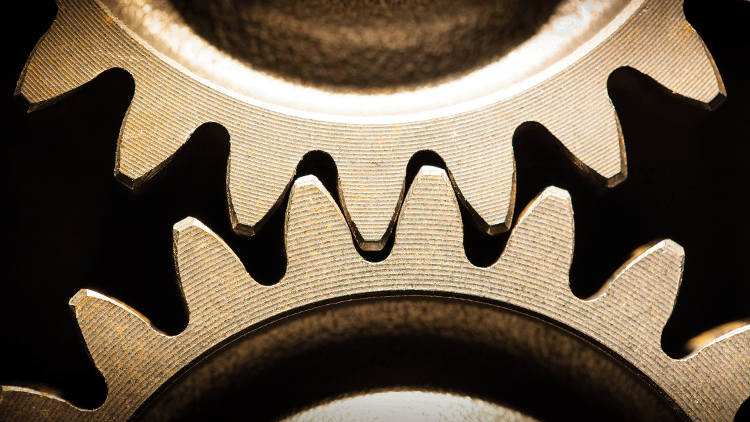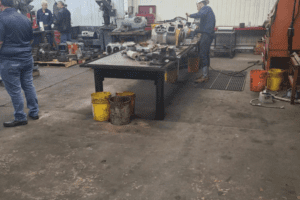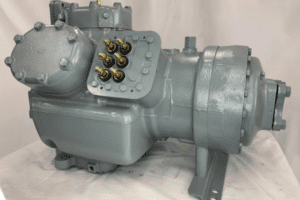If you work with refrigeration or cooling systems that rely on a commercial compressor, odds are good that you are already familiar with the reciprocating compressor, also known as the piston compressor. Even though there are many alternatives, the piston compressor likley remains the most popular and familiar option.
Still, it’s important to be aware of the other selections on the market. The piston compressor has the longest history and is easy to set up and maintain, but isn’t the best selection for every system. Many companies that rely on compressors have been considering the screw compressor as a possible alternative.
What Makes a Screw Compressor Different from the Rest?
Once your system is set up, you should always stick with the same make and model of compressor you started with. That said, a new setup is the perfect time to look at alternative options. In recent years, the commercial screw compressor has been making inroads into the reciprocating compressor in some industries.
The basic principles behind all commercial compressors are the same. Still, the screw compressor has a number of benefits that can make it more attractive for certain applications. Some of the advancements incorporated in the screw compressor design are a direct response to common concerns about reciprocating compressors.
Also called a rotary screw compressor or helirotor, a commercial screw compressor uses a rotary displacement mechanism. Two meshing helical screws, with one driving the other, are used to pressurize the refrigerant gas. As the screws rotate, the volume of the space between them decreases, resulting in compression.
When the appropriate level of pressurization is achieved, the refrigerant gas is pushed to the end of the screws and discharged through the outlet valve. The rest of the refrigeration cycle is similar to what one would expect with other compressor types, such as a scroll compressor or a piston compressor.
A Commercial Screw Compressor Can Be More Efficient and Easier to Use
There are several significant advantages of a commercial screw compressor:
1. Reduced Wear and Tear
While a piston compressor is extremely reliable, its major drawback is the mechanical wear and tear that comes from the reciprocal action. Pistons develop predictable patterns of wear and will eventually stop working. With the screw compressor design, friction is reduced to a minimum.
In the long run, this means that a screw compressor is more likely to sustain a high level of efficiency through to the latter half of its eight to ten years of service. Even though a screw compressor is a bigger investment than a comparable reciprocating compressor, the cost of ownership can be kept low as performance degrades less.
2. Fewer Moving Parts
Screw compressors and scroll compressors alike are designed to cut down on the total number of moving parts in comparison to the reciprocating compressor. That means fewer points of failure, which makes it easier for a team to execute regular maintenance – weekly, monthly, quarterly, and annual.
With fewer moving parts, it’s easier to make sure you have all the right spare compressor parts on hand to keep your unit running smoothly. Not all commercial compressors are designed for major field repairs, but it doesn’t hurt to have options available. That’s especially true when a compressor malfunction could cost millions!
3. High Speed of Operation
One of the screw compressor’s main claims to fame is its ability to combine a high speed of operation with a relatively compact footprint. A smaller footprint means you have more options for deciding where to station your compressor. That’s made even better by the fact that a screw compressor tends toward quiet operation.
With greater output and efficiency, many businesses come to the conclusion that a screw compressor is best for their long-term needs compared to a less expensive alternative. The higher noise levels and vibrations you can reasonably expect at higher output levels are mitigated by the screw design.
4. Steady Flow of Compressed Gas
One reason why the screw compressor was initially developed was to create a delivery system that would not experience the pulsation or surging caused by reciprocating piston action. The rotors in a screw compressor go through a continuous sweeping motion, enabling a consistent flow at higher pressures.
Need a Replacement Screw Compressor? A Remanufactured Screw Compressor Is the Answer
Screw compressors are designed according to tight engineering tolerances and can take many months to source from an OEM-affiliated wholesaler. By contrast, you can get your screw compressor replacement underway fast when you go with a remanufactured commercial compressor.
A remanufactured commercial compressor uses your existing screw compressor core as a base, so the process starts right away. At every step, necessary replacements are made and tests are run to ensure your unit works like new when you receive it, weeks or months earlier than you would otherwise.












